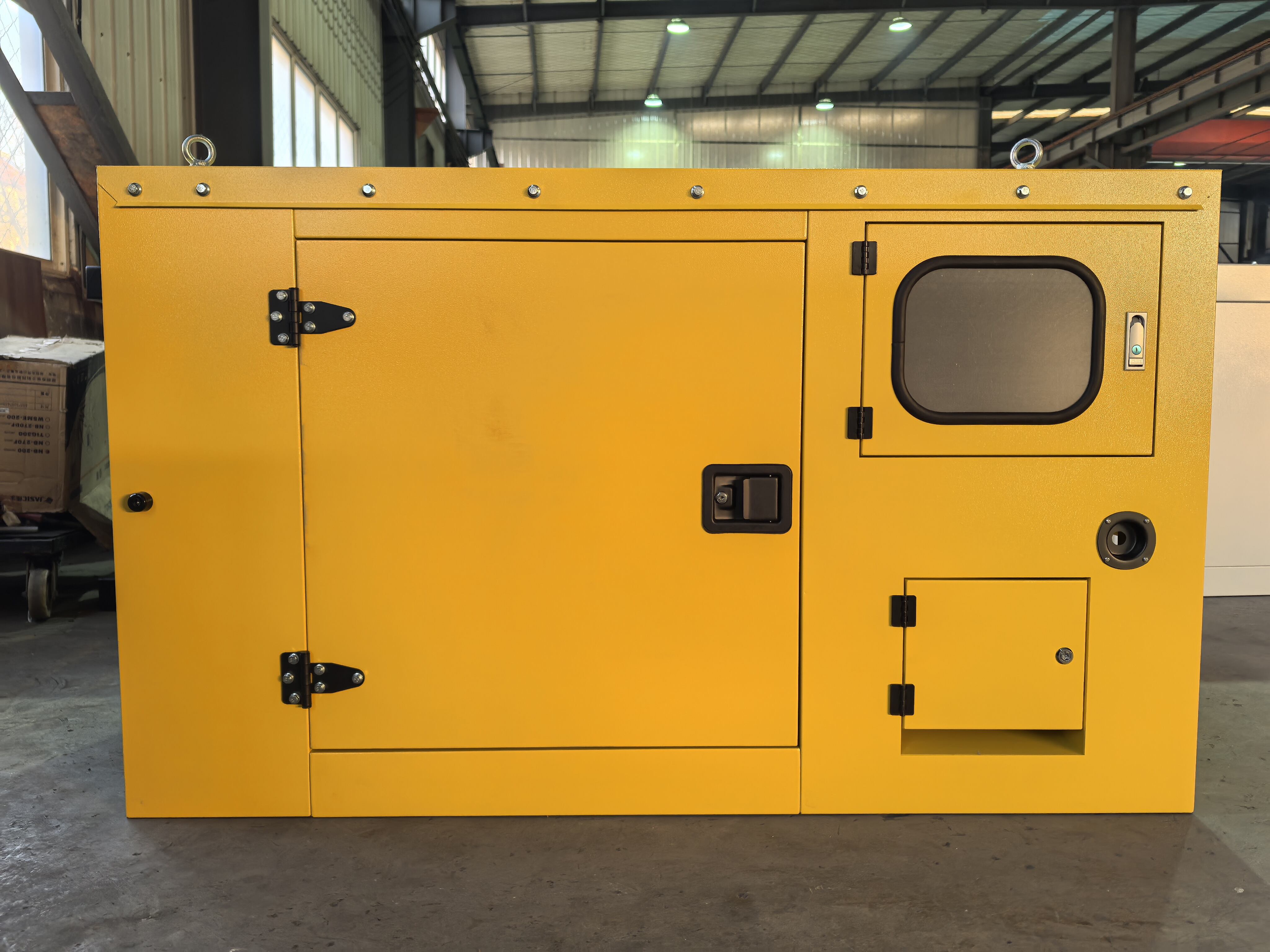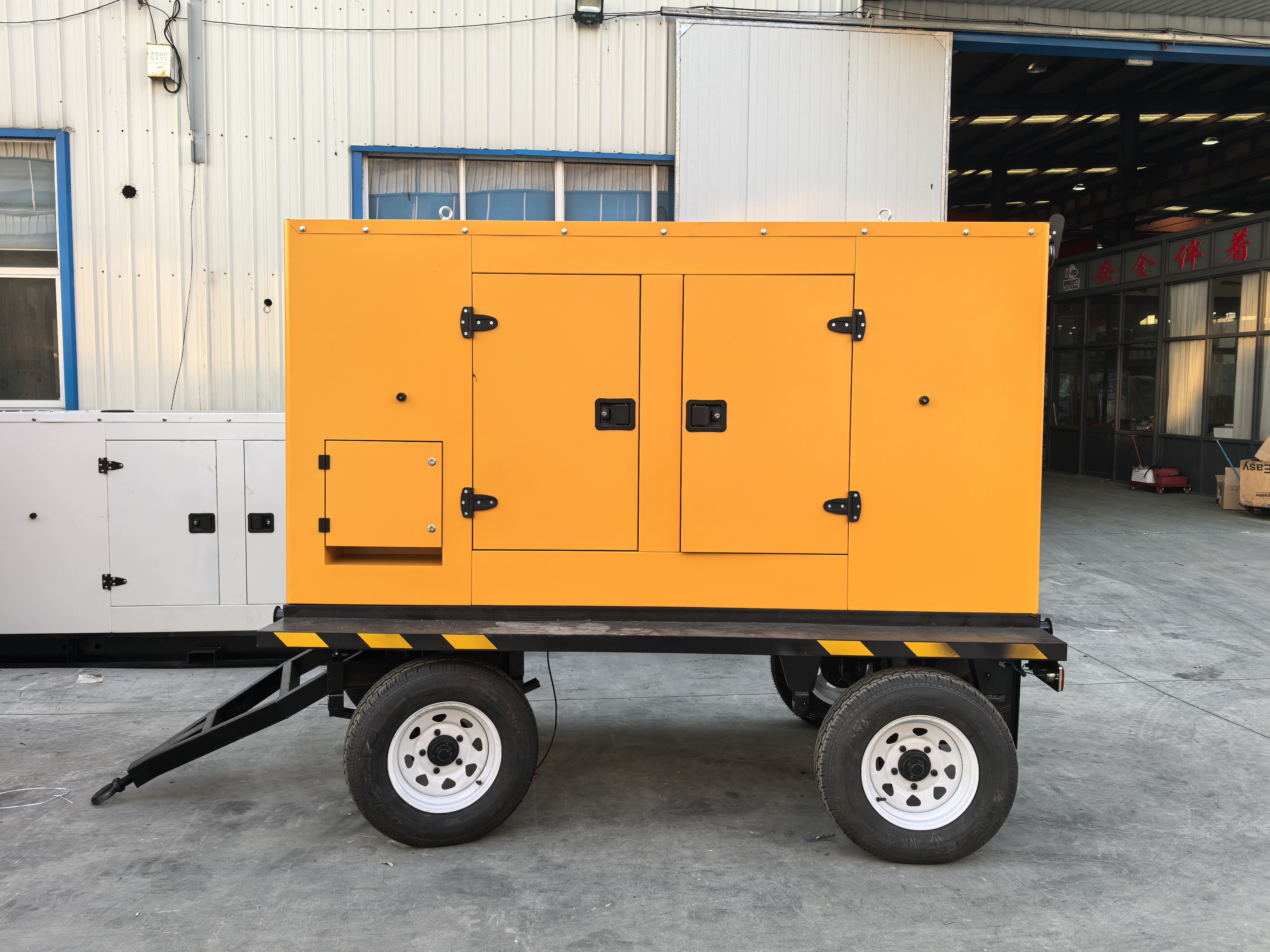Наскільки енергоефективні тихі дизельні генератори порівняно з іншими типами генераторів?
Тихі дизельні генератори постали все більш популярним вибором серед як приватних, так і промислових користувачів, які потребують надійного електроживлення, але хочуть мінімізувати шумове забруднення. Ці машини цінуються не лише за тихою роботою, а й за енергоефективність, що безпосередньо впливає на експлуатаційні витрати, споживання палива та екологічну стійкість. Порівняно з іншими типами генераторів — такими як бензинові, газові або системи на поновлюваних джерелах енергії — тихі дизель-генератори займають унікальне становище в енергетичному секторі. Щоб зрозуміти їхню ефективність, слід уважніше розглянути їхній дизайн, експлуатаційні характеристики та порівняльні переваги.
Знайомство з безшумними дизель-генераторами
Тихі дизельні генератори по суті є традиційними дизельними генераторами, ув'язненими в звукоізоляційні кабіни або вбудованими з технологією зменшення шуму. Хоча основна механіка генератора залишається незмінною — дизельне згоряння, що приводить в рух генератор для виробництва електроенергії — безшумні версії зосереджені на мінімізації вихідного рівня децибел без втрати продуктивності. Це робить їх придатними для використання в житлових районах, лікарнях, школах, офісах та місцях проведення заходів, де контроль шуму є критичним.
Енергоефективність безшумних дизельних генераторів залежить від ефективності перетворення палива в корисну електричну енергію. На відміну від звичайних генераторів, безшумні моделі оптимізовані не тільки для зменшення шуму, але й для стабільної тривалої роботи, що часто робить їх більш економічно вигідними у довгостроковій перспективі.
Чому важлива енергоефективність генераторів
Енергоефективність генераторів визначає, скільки палива необхідно для виробництва одиниці електроенергії. Більш ефективний генератор споживає менше палива, виробляє менше викидів та зменшує загальні експлуатаційні витрати. У багатьох частинах світу, де ціни на паливо є нестабільними, енергоефективність є критичним фактором як для бізнесу, так і для домогосподарств.
Для тихих дизельних генераторів ефективність часто підкреслюється поряд із зменшенням шуму. Оскільки ці генератори використовуються в чутливих середовищах, поєднання тихої роботи та низького споживання палива забезпечує мінімальні перешкоди та кращу стійкість.
Порівняння тихих дизельних генераторів із бензиновими генераторами
Бензинові генератори є поширеною альтернативою дизельним генераторам, особливо для менших застосувань. Однак, коли порівнюється ефективність, тихі дизельні генератори зазвичай перевершують бензинові моделі.
Різниця у споживанні палива
Дизельні двигуни мають більш високу енергетичну щільність порівняно з бензиновими двигунами, що означає, що вони видобувають більше енергії з кожного літра палива. Наприклад, дизель-генератор може працювати значно довше на одному об'ємі палива порівняно з бензиновим генератором, який виробляє аналогічну вихідну потужність. Безшумні дизель-генератори завдяки оптимізованим системам ще більше підвищують цю перевагу, мінімізуючи втрати та підтримуючи стабільне згоряння палива.
Термін служби та довговічність
Ще один аспект ефективності пов'язаний з тривалістю використання. Дизель-генератори, у тому числі безшумні моделі, зазвичай служать набагато довше, ніж бензинові аналоги. Якщо бензиновий генератор, як правило, вважається придатним для тимчасового або аварійного використання, то безшумний дизель-генератор створений для тривалої та регулярної експлуатації. Така тривалий термін служби зменшує витрати на заміну, роблячи їх більш ефективними протягом усього життєвого циклу обладнання.
Порівняння безшумних дизель-генераторів і генераторів на природному газі
Генератори, що працюють на природному газі, часто вважаються більш чистими та екологічно безпечними. Однак з точки зору енергоефективності, тихі дизельні генератори все ще мають перевагу в кількох аспектах.
Перетворення енергії
Хоча природний газ менш енергонаповнений порівняно з дизельним паливом, він часто дешевший у регіонах з великим його постачанням. Проте тихі дизельні генератори виробляють більше енергії на одиницю палива і зазвичай досягають вищої теплової ефективності. Це означає, що вони потребують менше місця для зберігання палива і легко справляються з важчими навантаженнями.
Надійність
Тихі дизельні генератори також вважаються більш надійними, ніж газові, у певних умовах, особливо в регіонах, де можливе переривання постачання газу. Їх автономне зберігання палива дозволяє їм працювати незалежно, тоді як генератори на природному газі залежать від безперебійного постачання через трубопроводи. З точки зору ефективності, безперервна робота забезпечує відсутність втрат енергії під час простой.
Порівняння тихих дизельних генераторів із системами на поновлюваних джерелах енергії
Системи поновлюваної енергії, такі як сонячна або вітрова, все частіше впроваджуються в енергетичні рішення. Хоча ці системи є стійкими та чистими, їхня ефективність залежить від умов.

Нестабільність та потреба у резервуванні
Сонячні та вітрові системи не завжди можуть гарантувати стабільну виробництво енергії через зміни погоди. У таких випадках тихі дизельні генератори часто використовуються як резервні системи. Їхня ефективність проявляється тим, що вони швидко та надійно можуть компенсувати перебої в роботі поновлюваних джерел енергії, не вимагаючи надмірного споживання палива.
Гібридні рішення
Багато сучасних установок поєднують поновлювані джерела з тихими дизельними генераторами. Такий гібридний підхід забезпечує постійне енергопостачання з оптимізацією витрат палива. Дизельний генератор працює лише за потреби, що робить загальне використання енергії більш ефективним.
Конструктивні особливості, що забезпечують енергоефективність
Тихі дизельні генератори створені з урахуванням особливостей конструкції, які безпосередньо впливають на їхню ефективність.
Звукоізоляція та теплова ізоляція
Корпуси, які використовуються для зменшення шуму, також покращують теплоізоляцію, допомагаючи підтримувати сталу температуру двигуна та зменшуючи втрати енергії. Краще теплове управління призводить до більш ефективного згоряння.
Системи управління навантаженням
Сучасні тихі дизель-генератори оснащені розумним управлінням навантаженням, що дозволяє їм регулювати вихідну потужність відповідно до потреб. Це запобігає витратам пального і підвищує ефективність у умовах низького навантаження.
Сучасні двигуни
Покращення систем паливного впорскування, турбонаддуву та електронних блоків керування (ЕБК) забезпечують оптимізацію згоряння палива. Це збільшує кількість кіловат-годин, що виробляються з одного літра дизельного палива.
Галузі, де важлива ефективність
Тихі дизель-генератори широко використовуються в ситуаціях, де необхідні як тиха робота, так і ефективність.
Житлові райони
Для домогосподарств, особливо в міських або передмістях, ефективність споживання палива зменшує витрати на експлуатацію резервного живлення. Тиха робота забезпечує виконання місцевих санітарних норм щодо шуму.
Медичні заклади
Лікарні та клініки потребують безперебійного, ефективного живлення. Тихі дизельні генератори забезпечують тривалий резерв без створення шумового навантаження, яке може впливати на одужання пацієнтів.
Комерційні комплекси та заходи
Підприємства та заходи прагнуть зекономити кошти та звести до мінімуму перерви у роботі. Ефективні, тихі генератори забезпечують безперебійну роботу без надмірних витрат.
Екологічні наслідки ефективності
Енергоефективні тихі дизельні генератори також сприяють екологічно стійкому розвитку. Знижене споживання палива означає менше викидів парникових газів і зменшення кількості твердих частинок. Хоча вони не такі чисті, як відновлювані джерела енергії, сучасні дизельні генератори з технологіями контролю викидів можуть працювати в межах суворих регуляторних обмежень.
Аналіз вартості ефективності
Протягом усього терміну служби генератора паливо становить найбільшу частку експлуатаційних витрат. Силові генератори, що відрізняються більшою паливною ефективністю порівняно з альтернативними, можуть суттєво знизити загальну вартість володіння. У поєднанні з їх довшим терміном служби вони часто забезпечують кращий прибуток на інвестиції, незважаючи на вищі початкові витрати.
Майбутнє тихих дизельних генераторів
З розвитком технологій тихі дизельні генератори продовжують удосконалюватися як у плані ефективності, так і екологічних показників. Разом із суворішими нормативами та зростаючим попитом на чисту енергію інновації, такі як гібридна інтеграція, сумісність з біодизелем та сучасні системи контролю викидів, ще більше посилять їхню роль.
Висновок
Силові агрегати з дизельним двигуном із низьким рівнем шуму є збалансованим рішенням, яке поєднує ефективність, надійність і тиху роботу. Порівнюючи їх з бензиновими, газовими та відновлюваними системами, вони демонструють стабільно високі показники ефективності витрат пального, довговічності та економічності протягом усього терміну експлуатації. Для користувачів, які прагнуть досягти як економії, так і зниження рівня шуму, тихі дизельні генератори залишаються кращим вибором.
ЧаП
Наскільки ефективні тихі дизельні генератори порівняно з бензиновими?
Тихі дизельні генератори значно ефективніші, вони витрачають менше пального на одиницю виробленої електроенергії та мають більший термін служби.
Чи обходяться тихі дизельні генератори дорожче в експлуатації порівняно з газовими генераторами?
Не обов’язково. Хоча природний газ може бути дешевшим у деяких регіонах, більша енергетична щільність дизпального забезпечує кращу паливну ефективність, особливо під високим навантаженням.
Чи викидають тихі дизельні генератори менше шкідливих речовин?
Сучасні тихі дизель-генератори створені з використанням технологій контролю викидів, які зменшують шкідливі викиди. Їхня ефективність означає, що вони спалюють менше палива загалом, зменшуючи загальні викиди.
Чи можна використовувати тихі дизель-генератори разом із системами на відновлюваних джерелах енергії?
Так, їх часто використовують разом із сонячною або вітровою енергією в гібридних системах, щоб забезпечити надійне резервне живлення, коли відновлювані джерела коливаються.
Який звичайний термін служби тихого дизель-генератора?
За належного обслуговування тихий дизель-генератор може прослужити 15–20 років або більше, що робить його міцнішим, ніж багато інших джерел енергії.
Зміст
- Наскільки енергоефективні тихі дизельні генератори порівняно з іншими типами генераторів?
- Знайомство з безшумними дизель-генераторами
- Чому важлива енергоефективність генераторів
- Порівняння тихих дизельних генераторів із бензиновими генераторами
- Порівняння безшумних дизель-генераторів і генераторів на природному газі
- Порівняння тихих дизельних генераторів із системами на поновлюваних джерелах енергії
- Конструктивні особливості, що забезпечують енергоефективність
- Галузі, де важлива ефективність
- Екологічні наслідки ефективності
- Аналіз вартості ефективності
- Майбутнє тихих дизельних генераторів
- Висновок
-
ЧаП
- Наскільки ефективні тихі дизельні генератори порівняно з бензиновими?
- Чи обходяться тихі дизельні генератори дорожче в експлуатації порівняно з газовими генераторами?
- Чи викидають тихі дизельні генератори менше шкідливих речовин?
- Чи можна використовувати тихі дизель-генератори разом із системами на відновлюваних джерелах енергії?
- Який звичайний термін служби тихого дизель-генератора?

